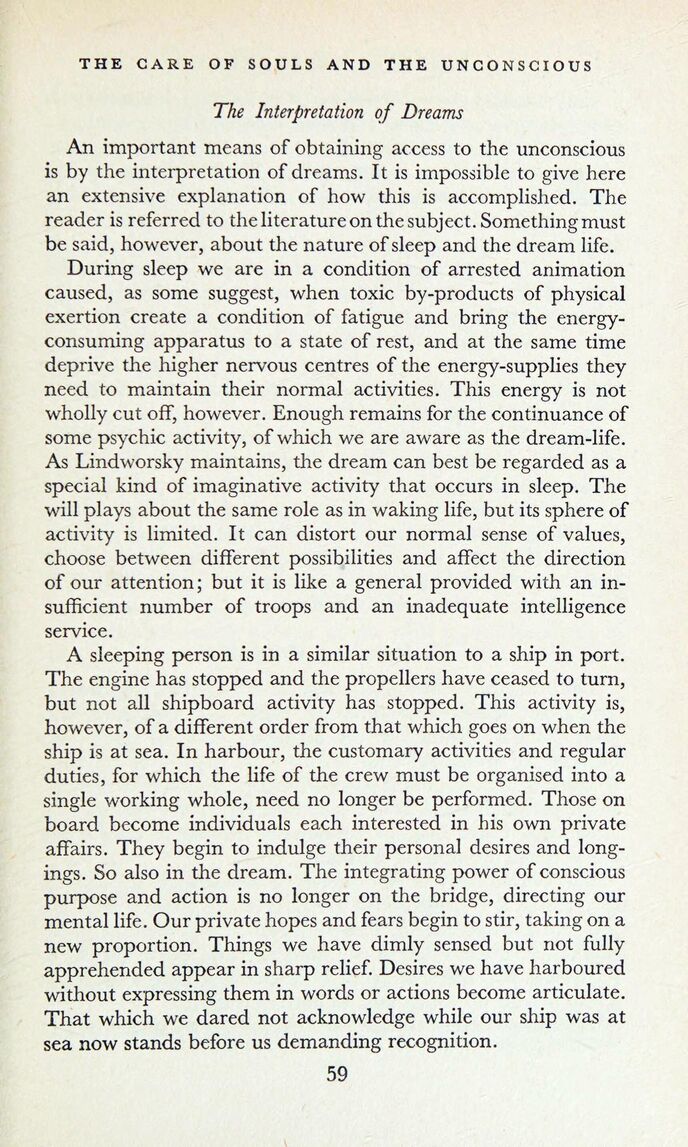
Full resolution (JPEG) - On this page / på denna sida - Part 1. The Responsibilities and Limitations of the Task - 5. The Care of Souls and the Unconscious - The Interpretation of Dreams

<< prev. page << föreg. sida << >> nästa sida >> next page >>
Below is the raw OCR text
from the above scanned image.
Do you see an error? Proofread the page now!
Här nedan syns maskintolkade texten från faksimilbilden ovan.
Ser du något fel? Korrekturläs sidan nu!
This page has never been proofread. / Denna sida har aldrig korrekturlästs.
THE CARE OF SOULS AND THE UNCONSCIOUS
The Interpretation of Dreams
An important means of obtaining access to the unconscious
is by the interpretation of dreams. It is impossible to give here
an extensive explanation of how this is accomplished. The
reader is referred to the literature on the subject. Something must
be said, however, about the nature of sleep and the dream life.
During sleep we are in a condition of arrested animation
caused, as some suggest, when toxic by-products of physical
exertion create a condition of fatigue and bring the
energyconsuming apparatus to a state of rest, and at the same time
deprive the higher nervous centres of the energy-supplies they
need to maintain their normal activities. This energy is not
wholly cut off, however. Enough remains for the continuance of
some psychic activity, of which we are aware as the dream-life.
As Lindworsky maintains, the dream can best be regarded as a
special kind of imaginative activity that occurs in sleep. The
will plays about the same role as in waking life, but its sphere of
activity is limited. It can distort our normal sense of values,
choose between different possibilities and affect the direction
of our attention; but it is like a general provided with an
insufficient number of troops and an inadequate intelligence
service.
A sleeping person is in a similar situation to a ship in port.
The engine has stopped and the propellers have ceased to turn,
but not all shipboard activity has stopped. This activity is,
however, of a different order from that which goes on when the
ship is at sea. In harbour, the customary activities and regular
duties, for which the life of the crew must be organised into a
single working whole, need no longer be performed. Those on
board become individuals each interested in his own private
affairs. They begin to indulge their personal desires and
longings. So also in the dream. The integrating power of conscious
purpose and action is no longer on the bridge, directing our
mental life. Our private hopes and fears begin to stir, taking on a
new proportion. Things we have dimly sensed but not fully
apprehended appear in sharp relief. Desires we have harboured
without expressing them in words or actions become articulate.
That which we dared not acknowledge while our ship was at
sea now stands before us demanding recognition.
59
<< prev. page << föreg. sida << >> nästa sida >> next page >>